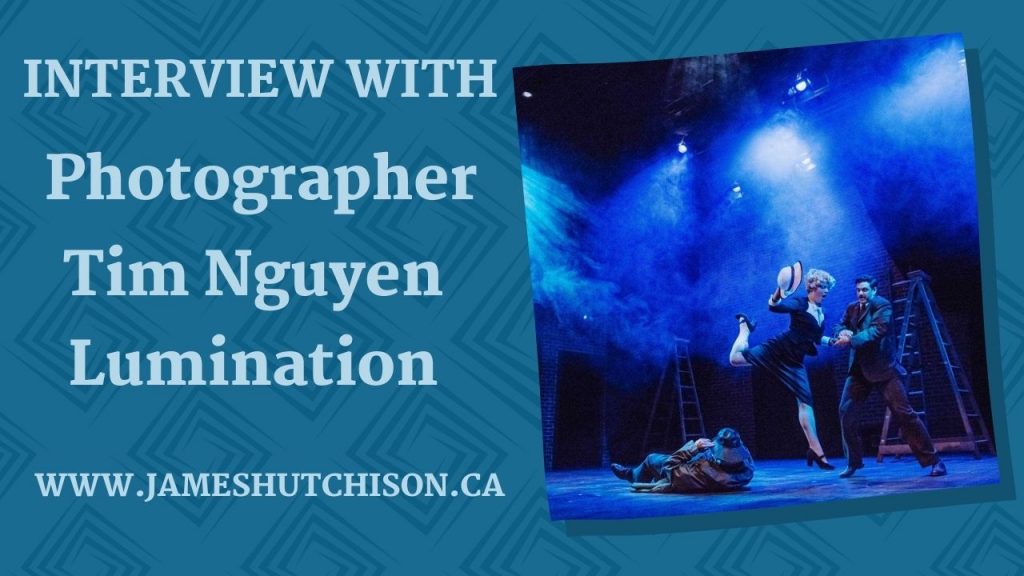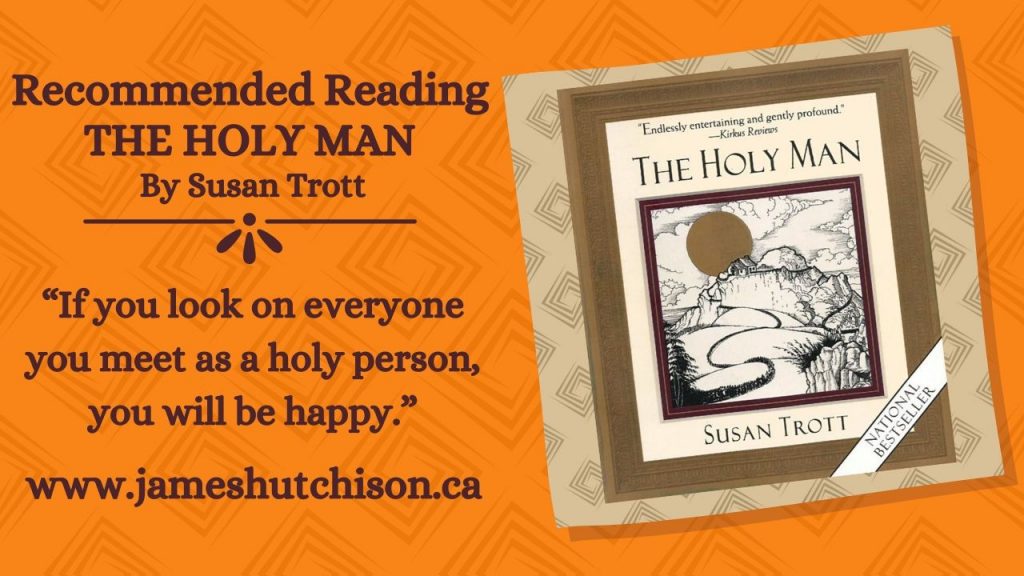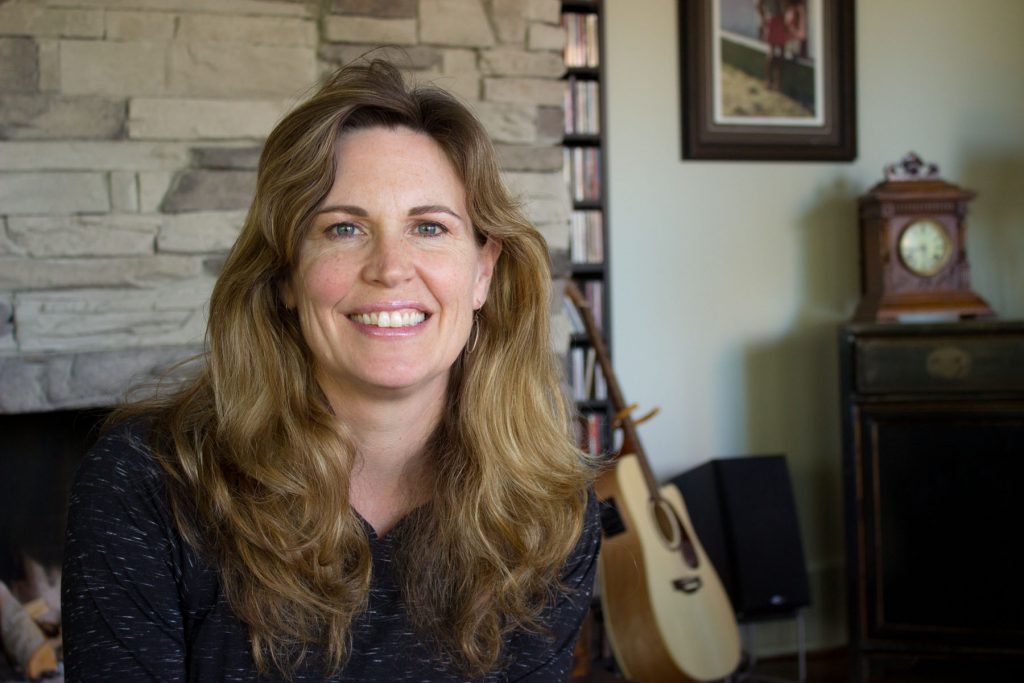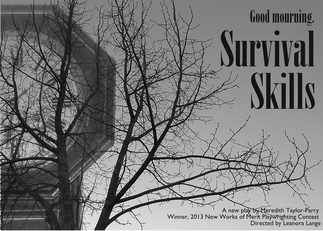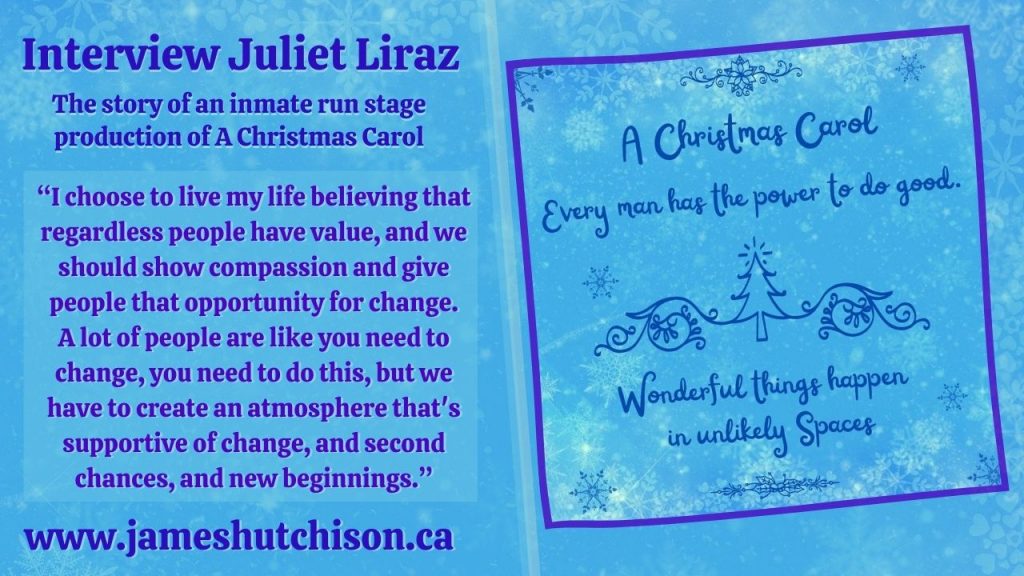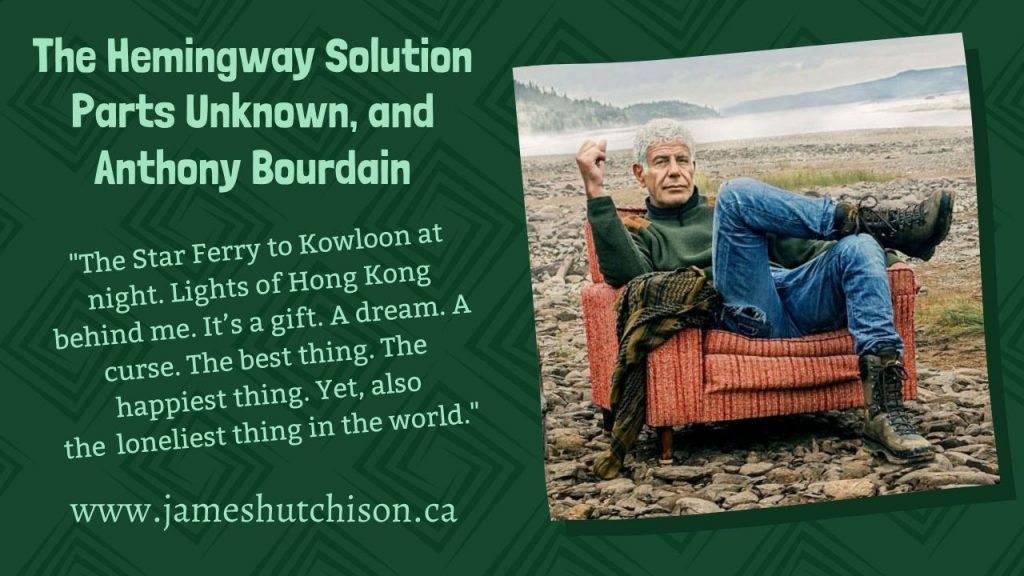Chapter One
To fall in love with Asia is one thing. To fall in love in Asia is another. Both have happened to me.
The Star Ferry to Kowloon at night. Lights of Hong Kong behind me. It’s a gift. A dream. A curse. The best thing. The happiest thing. Yet, also the loneliest thing in the world.
Anthony Bourdain – Parts Unknown – Hong Kong
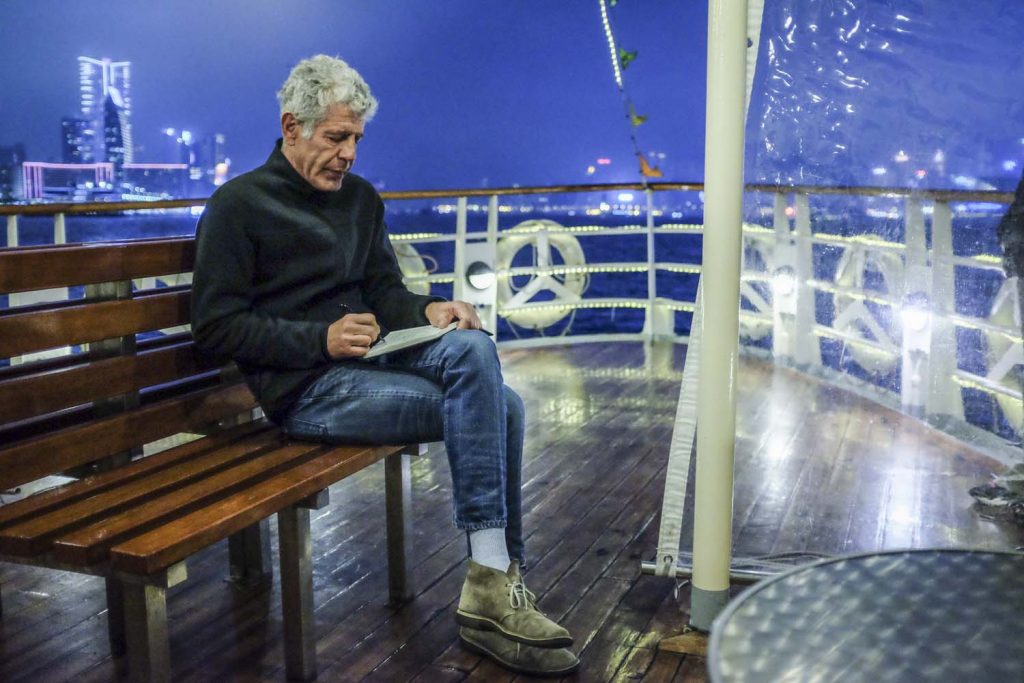
The Hemingway Solution – that’s a title for a short play idea I’ve had – the Hemingway Solution is of course suicide. There’s always, “the Hemingway solution” so says one of my characters in my, as of yet, unwritten play.
Thoughts of death and suicide are not abnormal. We’re mortal after all. It would be strange not to ponder our own mortality. And once you have an adult mind you can imagine all sorts of “what if” possibilities. “What if I could fly?” “What if I had magical powers?” “What if aliens are already among us?” “What if I am an alien?” “What if I died?”
The movie The Big Chill from 1983 is all about a group of college friends getting together after one of them commits suicide. It’s a movie worth checking out if you haven’t seen it, or if you have seen it, why not see it again. It has a stellar cast. Kevin Kline, Jeff Goldblum, Glenn Close, Meg Tilly, Jobeth Williams, Tom Berenger, William Hurt, and Mary Kay Place, and it was written and directed by Lawrence Kasdan. I’ve been thinking about this movie because it’s a mainstream film that deals with suicide and questions of life and that’s good because suicide is part of the human experience and so both in our personal thoughts and in our art the subject is going to be explored. And right now there’s seems to be a more urgent need to talk about suicide because suicide rates are on the rise. In the United States, for example, over the last twenty years, CNN reports that twenty-five States have experienced a rise in suicide rates of more than 30% according to statistics released by US Centers for Disease Control and Prevention.
But there’s a difference between thinking about suicide in a casual “what if” way and being suicidal. Those are two very different things. When you’re suicidal you’re probably depressed and when you’re depressed you’re in a place of despair and despair means you disconnect from things. You don’t want to see your friends. You don’t want to ask for help, or if you are asking for help you might be doing it in an indirect way. You might reach out with a text or an e-mail or a phone call because you need to connect and talk about your problems but you don’t necessarily say that. Maybe you talk or write about everything else except what’s really on your mind. Because here’s the thing. We’re not supposed to talk about suicidal thoughts – that’s taboo. Especially if you’re a man. It means you’re weak, right? And unfortunately, if you don’t talk about it and you don’t get the help you need the end result could be deadly. And that’s why we need to talk about Anthony Bourdain.

I’ve been thinking a lot about Anthony Bourdain, as have a lot of people, over the last couple of weeks. I knew about him – but I’d never read any of his books or watched any of his shows. He was a famous stranger. The first time I remember being aware of a famous stranger was when Elvis died. His music and personality had always been a part of my life and so when he died, even though I wasn’t a huge fan, I still felt a sense of loss. And Bourdain, like Elvis, is someone I knew about – someone whose shows I would have loved if I had watched them – but I didn’t watch them – that is – until yesterday.
Yesterday I tuned into CNN and I ended up watching the last episode of Parts Unknown where Bourdain travels to Bhutan – with the director of the movie Mother – Darren Aronofsky. Bhutan is a country committed to protecting the environment and its culture. Fifty percent of the land is under some sort of protection and off limits to development. So it makes a lot of sense to have Aronofsky there because his film is all about man’s abuse and destruction of the earth and Bhutan which locally is focused on environmental protection is feeling the direct effects of global warming. The snows no longer fall. And the glaciers are melting. And even though the current government wants to protect the environment, once they open themselves up to the world they will be under increasing pressure to change – because the world has powerful forces motivated by money and profit who don’t give a damn about the environment. Me, I like the Bhutan way of thinking – I like the idea that at least fifty percent of the world should be off-limits to development. But I’m getting sidetracked. I was talking about Anthony Bourdain.
So, I watched the final episode of Parts Unknown – and it was a fascinating glimpse into a really interesting country and a totally different way of life. And then I watched an episode of The Layover with Anthony Bourdain on Netflix where he goes to São Paulo. The thing about Bourdain’s shows, which you probably already know and I didn’t, is that they’re not just about food. They’re really about people and culture. The food is the doorway, and if I had to sum up his style and approach I’d call it authentic and truthful. Maybe that’s why Bourdain comes across as so likable. He’s not pretentious. He loves food. He loves people. He loves going to far-away places.
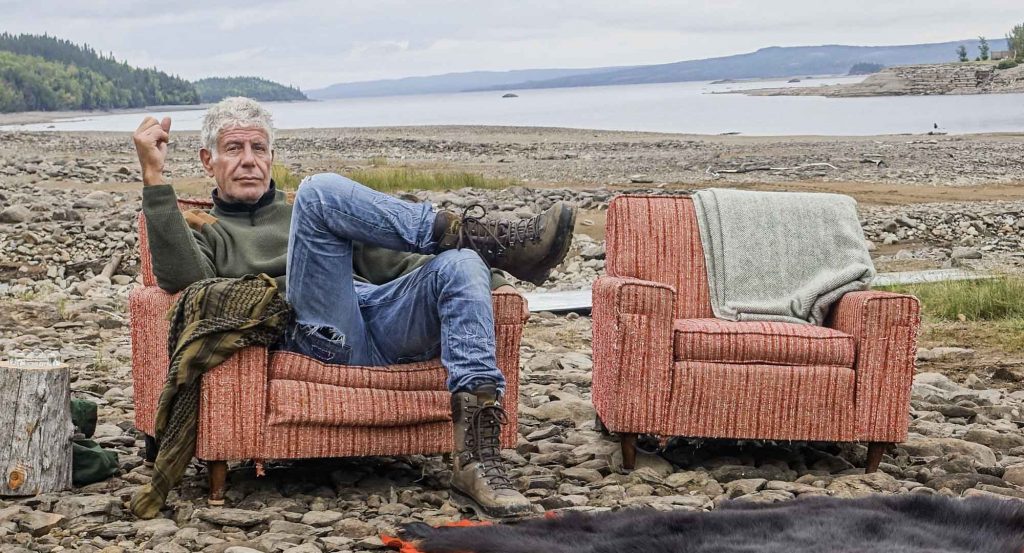
And that’s what struck me most after I watched these shows was Bourdain’s genuine curiosity and interest in other people. That’s something we share. That’s why I studied sociology. That’s why I tell stories. That’s why I thought of being a therapist. That’s why I’ve started to interview people for my blog instead of just writing about my own thoughts and ideas. I want to interview playwrights and actors and designers and anyone else that’s involved in the creation of theatre. You see I’m interested in the creative impulse and what drives people. And I have done a few interviews already. I talked with playwright Meredith Taylor-Parry about her play Survival Skills which deals with the aftermath of suicide and was produced a few years back Off-Broadway. I also talked to Dale Lee Kwong about her cultural coming out story Ai Yah! Sweet and Sour Secrets which ran at Lunchbox Theatre this year. And most recently I interviewed actor and playwright Braden Griffiths who is the president of The Betty Mitchell Awards Committee about the Betty Awards and theatre in Calgary.
So, watching Bourdain has inspired me to do more. To dig deeper. To think about what my interviews can be. And so, even though I’m going to work harder on more blog posts and interviews, I’m also going to watch more Anthony Bourdain and in particular, I’m going to watch his show on Hong Kong. Why? Because this show according to Bourdain was the professional highlight of his career. That’s what he told Anderson Cooper at CNN. That’s what he wrote in a guest column for the Hollywood Reporter called, My Cinematic Dream Filming With Asia Argento and Christopher Doyle in Hong Kong which was published just six days before his death. Doesn’t that just hit you in the gut? Here he is saying this is what I’ve been reaching for professionally all my life and a few days later he kills himself. I don’t know if there’s a connection between the two but I so wish someone had been there – that at that dark moment in his life he hadn’t found himself alone.
Because we all face dark days. We all face times when we need a friend. I think one of the other reasons Bourdain’s’ death has been on my mind so much is simply his age. He’s not much older than I am. In fact, oddly enough he’s about the same age Hemingway was when Hemingway killed himself. Hemingway died at 61 a few weeks before his 62nd birthday. Birthdays can be troubling events. Not everyone finds the passing of another year something to celebrate. But growing old is inevitable. So too is dying. So you’d think the inevitability of death would make life worth living but it doesn’t when you’re depressed because when you’re depressed even the smallest daily tasks can seem overwhelming and take incredible amounts of energy to complete. Basically, life becomes exhausting. So, how are you supposed to help someone when they won’t talk about their feelings or ask for help? You need to be sensitive to changes in their behaviour and routines. Those can be clues to how they’re feeling and if you suspect a friend or family member is depressed or suicidal then ask them how they’re doing. And then listen. Don’t judge. Just listen. And then urge them to talk to a healthcare professional and get the help they need.
***
NOTE: I wrote the original draft of this article on Monday, June 25th which was Bourdain’s 62nd birthday. I didn’t know that at the time it was just one of those weird coincidences you sometimes encounter in life. I’d watched the final episode of Parts Unknown on Sunday, June 24th on CNN
***
Other interviews and links about Anthony Bourdain that may be of interest:
- Anthony Bourdain: Parts Unknown: Anthony Bourdain travels the world uncovering lesser-known places and exploring their cultures and cuisine.
- Tony David Simon, the creator of The Wire, pays tribute to and writes about his friendship with Anthony Bourdain. A friendship that, for Simon, began when he binged on episodes of No Reservations one otherwise uneventful Labour Day Weekend. June 2018
- Anthony Bourdain on Asia Argento, His Favorite Movies, and Why Donald Trump Would Be a Terrible Dinner Companion The television host talks about how movies influence every aspect of his show and how Argento has inspired his latest stage of life. June 2018
- Anthony Bourdain Would Rather ‘Die in the Saddle’ Than Ever Retire: Inside His Wild Life on the Road PEOPLE spent three days with Anthony Bourdain while he filmed an episode of Parts Unknown. May 2018
- Anthony Bourdain: The Thrillist Interview I was fortunate to have had the opportunity to sit down with Anthony Bourdain for an interview. I will always remember our wide-ranging, candid conversation. His untimely passing is a great loss for all of us who loved his books, his television shows and the passion he brought to talking about food and travel. July 2016
If you or someone you know is facing difficult challenges then here a couple of links with information about suicide and suicide prevention.
- Risk Factors and Warning Signs for Suicide: How they differ and what they mean.
- Canadian Association for Suicide Prevention
Links to recent news stories related to suicide and suicide prevention.
- Many of my childhood friends are dead. Is masculinity to blame? The blue-collar town of Kamloops has been riven by accidents, overdoses, and suicides. After losing several friends, one writer returned to find out why. The Guardian June 2018
- Suicide rates among Canadian women are rising faster than men. It’s unclear why: More men die by suicide than women in the U.S. and Canada on a yearly basis. But the rate of suicide is rising among women more quickly than men in both countries. Global News June 2018
- US suicide rates increased more than 25% since 1999, CDC says: Overall, the US experienced a 25% rise in the rate of suicides, with individual states ranging from a 6% increase in Delaware to a nearly 58% increase in North Dakota. CNN June 2018
- We need to talk about male suicide: While suicide prevention efforts have largely focused on youth and young adults, we really need to be talking about middle-aged men and what can be done to help them, says political scientist Shannon Sampert. CBC Oct 2017
- Hidden Pain: Everything is Not Fine – Writer Poorna Bell on the tragic suicide of her husband, Rob, and the terrible tendency of men to hide their true feelings from loved ones.
